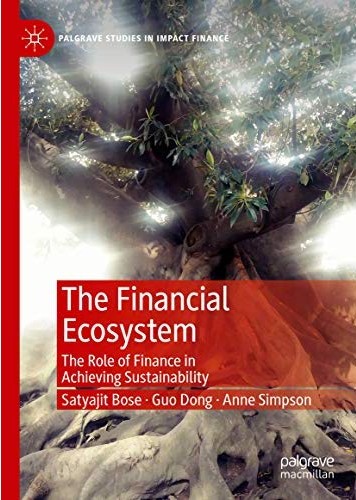Current Projects
We are conducting a joint research project with investment management firm AllianceBernstein, funded by their parent
company AXA, which seeks to quantify the potentially beneficial impact of patient portfolio flows into publicly traded emerging markets equities.
The project will assist efforts in the private sector to align investment activity with the United Nations Sustainable Development Goals (SDGs) by articulating the links between emerging market portfolio investments and specific SDGs.
Learn more here.
As income inequality continues to worsen across the United States, this research seeks to understand the causal impact of disasters on household finance and the implications of differentials in reconstruction finance. This project develops a gentrification index for New York City and assesses changes in Sandy-affected neighborhoods, with emphasis on households earning an annual income between $25-75k.
Completed Projects
With scientific contribution and funding by the Enel Foundation, the Earth Institute’s Research Program on Sustainability Policy and Management conducted a comparative study on the suitability of different carbon pricing mechanisms as policy instruments to mitigate climate change in different economic and institutional contexts. First, the research team analyzed the jurisdictional characteristics of 37 countries where carbon pricing mechanisms – both carbon taxes and cap-and-trade schemes – have been implemented or proposed as a means to support decarbonization. Next, we reviewed the historical experience of 11 national and 2 sub-national jurisdictions, which either implemented carbon pricing or attempted to do so in vain. Finally, we performed an in-depth review of two case study countries (Chile and Colombia) which are in the process of implementing carbon pricing policies, to identify the key drivers of adoption as well as any barriers that may impact successful policy implementation or effectiveness.
Download the report here.
Learn more here.
Catalytic finance leverages limited amounts of scarce development-focused capital into much larger amounts of other capital, particularly private capital, towards projects with high development impact. In order to successfully implement catalytic finance transactions in a development finance context, a development bank must play the essential role of a policy entrepreneur, often sourcing catalytic capital and other resources in a highly customized manner to address specific financing challenges.
This case study examines three innovative transactions designed by the Inter-American Development Bank (IDB) to address specific development financing challenges in the Latin America and Caribbean (LAC) region. These cases comprise risk reduction in the financing of geothermal energy, securitization of solar energy, and collective action to facilitate efficient and results-based investment in disease prevention. We examine the methods used in these transactions to decrease actual and perceived risk, and match appropriate sources of capital with pressing development needs. The broader lessons from these examples, when scaled up to similar situations, can facilitate the leveraging of private investment in the underdeveloped world that is many times larger than the available public capital. They all involve the curating of diverse sources of capital which would not be feasible in the absence of a mission-driven blended finance sponsor such as the IDB. These cases illustrate the crucial role played by the Office of Outreach and Partnerships within the IDB, whose task is to act as a resource mobilizer, blended finance sponsor and policy entrepreneur.
Download the report and learn more here.
A new book by Dr. Satyajit Bose, Dr. Dong Guo and Anne Simpson (CalPERS) outlines the rationale for and methods used in six areas where financial acumen has been harnessed to the goal of combining monetary return with long run sustainability. The authors illustrate analytical tools and specialized data sources essential to those interested in increasing the level of social responsibility embedded in economic activity.
Learn more and purchase the book here.

Presented at the Cities and Climate Change Conference (Cities IPCC) in 2018, this research was a review of urban level tools, such as municipal bonds, property assessed clean energy (PACE) programs, and partnerships for microgrid development that can catalyze sustainable distributed energy resources (DERs).
